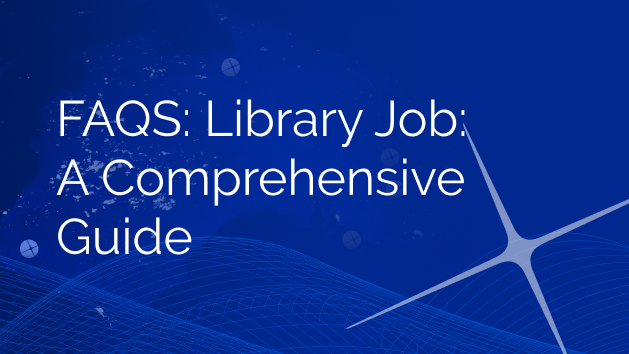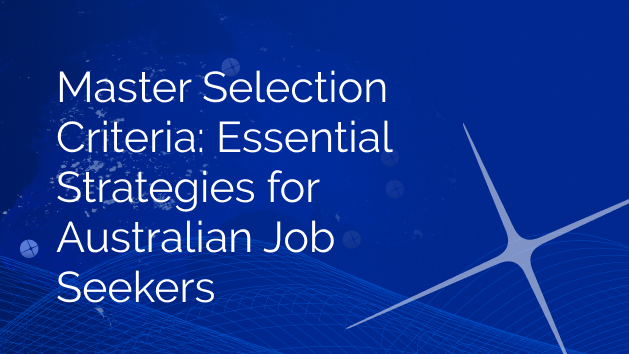Are you passionate about books, community service, and wish to be a part of Brisbane's thriving cultural scene? Brisbane City Library jobs offer a unique opportunity to engage with the community, support educational initiatives, and contribute to the intellectual growth of Queensland's capital. Whether you are a local resident or considering relocation, Brisbane City Library roles promise a dynamic and rewarding career path. Unveiling the Opportunities: What Brisbane City Library Jobs Offer Brisbane City Library is more than just a repository of books; it's a vibrant hub of learning, creativity, and community engagement. The library provides a plethora of services, including access to a vast collection of resources, community programs, digital learning, and cultural events. By pursuing a career at Brisbane City Library, you embark on a journey to empower, educate, and entertain the community. Diverse Roles and Responsibilities Jobs at Brisbane City Library span a variety of roles and responsibilities, catering to different skill sets and career interests. Positions range from front-line customer service to specialized roles in information management, digital services, community engagement, and program coordination. Whether you're a librarian, a digital content curator, or a community program manager, Brisbane City Library offers a platform to excel in your chosen field. A Supportive Work Environment Brisbane City Library is known for its inclusive and supportive work culture. The organization values diversity, encourages professional development, and fosters a collaborative environment where every team member's contribution is valued. Employees have access to training programs, career advancement opportunities, and a network of supportive colleagues, ensuring a fulfilling and progressive career journey. Making an Impact in the Community Working at Brisbane City Library is not just a job; it's a chance to make a meaningful impact in the community. Through various programs, events, and services, library staff play a crucial role in promoting literacy, lifelong learning, and cultural enrichment. By joining Brisbane City Library, you become an integral part of Brisbane's mission to nurture an informed, educated, and connected community. Embarking on Your Brisbane City Library Career Journey Pursuing a career with Brisbane City Library starts with understanding the recruitment process and requirements. Positions are advertised through the Brisbane City Council's official job portal, where you can find detailed information about current vacancies, job descriptions, and application procedures. Tailoring Your Application To stand out in the competitive job market, it's essential to tailor your application to the specific role you're applying for at Brisbane City Library. Highlight relevant experience, showcase your skills, and demonstrate your passion for community service and the library's mission. A well-crafted resume and cover letter can significantly enhance your chances of securing an interview. Preparing for the Interview If your application catches the eye of the hiring team, the next step is the interview. Preparation is key to success; research the library's services, programs, and strategic goals. Be ready to discuss your experience, how it aligns with the position, and how you can contribute to the library's objectives. Remember, the interview is also an opportunity for you to assess whether the role aligns with your career aspirations and values. Ignite Your Career with Ignite While the journey to securing a Brisbane City Library job can be challenging, partnering with the right recruitment agency can streamline the process. Ignite is the recruitment agency of choice for job seekers looking for library roles and businesses seeking top talent. With extensive experience in the Australian job market and a deep understanding of the library sector, Ignite offers personalized support, industry insights, and access to a wide range of opportunities. Whether you're a seasoned professional or a recent graduate, Ignite's team of experts is dedicated to helping you navigate the job market, refine your application, and prepare for interviews. By collaborating with Ignite, you gain a trusted partner committed to your career success. A Future Filled with Possibilities Brisbane City Library jobs offer a pathway to a rewarding and impactful career in one of Australia's most vibrant cultural institutions. With diverse roles, a supportive work environment, and the chance to make a difference in the community, the opportunities are boundless. If you're ready to embark on this exciting career journey, remember that Ignite is here to support you every step of the way, connecting job seekers with their dream roles and businesses with exceptional talent. Join the community of professionals who have found their calling in Brisbane's libraries. With Ignite, your career aspirations can turn into reality. Explore Brisbane City Library jobs today and take the first step toward a fulfilling and purposeful career in the heart of Australia.
Read MoreAre you passionate about books and eager to foster a love for reading in others? Do you enjoy organizing information and assisting others in finding the resources they need? If so, a career as a library assistant might be the perfect fit for you! In Australia, the demand for skilled library assistants remains steady, offering numerous opportunities across major cities like Sydney, Melbourne, Canberra, and Brisbane. This article provides an in-depth look at library assistant jobs, highlighting opportunities in these vibrant cities and offering tips on how to secure your next role. Understanding the Role of Library Assistants Library assistants play a crucial role in the day-to-day operations of libraries, ensuring that patrons have access to the information and resources they need. Their responsibilities can vary but typically include organizing materials, assisting patrons with research, managing check-in and check-out processes, and maintaining a welcoming and orderly environment. While the core duties are similar, library assistant roles can vary significantly depending on the size and type of the library. For example, positions in large academic libraries might focus more on research assistance and technical services, whereas those in small community libraries might involve a broader range of tasks, including organizing events and programs. Opportunities Across Australia Library Assistant Jobs in Sydney Sydney, known for its iconic landmarks and vibrant culture, also boasts a robust library system. With numerous public and academic libraries across the city, library assistant jobs in Sydney offer diverse opportunities to engage with the community and support education and research. These roles often require strong customer service skills, attention to detail, and a passion for literacy and learning. Library Assistant Jobs in Melbourne Melbourne, Australia's cultural capital, is renowned for its arts scene, cafes, and lively neighborhoods. It's also home to an extensive network of libraries that serve as community hubs and cultural centers. Library assistant jobs in Melbourne can range from supporting academic research in university libraries to organizing events and programs in public libraries, offering a dynamic work environment for those who are community-oriented and creative. Library Assistant Jobs in Canberra As Australia's capital, Canberra has a unique position with access to national libraries and archives, providing distinctive opportunities for library assistants. These roles often involve working with specialized collections and supporting the research needs of government and academic communities. Library assistant jobs in Canberra can offer the chance to engage with a wide range of materials and contribute to the preservation and dissemination of knowledge. Library Assistant Jobs in Brisbane Brisbane, with its sunny weather and laid-back lifestyle, also has a thriving library system that serves its diverse population. Library assistant jobs in Brisbane can be found in both public and academic settings, offering the chance to support education, research, and community engagement. These roles might involve working with children and families, supporting students and researchers, or helping to organize community events and programs. Securing Your Library Assistant Role To land a library assistant job in Australia, you'll need a combination of education, experience, and interpersonal skills. Most positions require at least a Certificate III in Library and Information Services, although requirements can vary. Gaining experience through internships or volunteer positions can also be invaluable, as can developing strong customer service, organizational, and technology skills. When applying for library assistant jobs, tailor your resume and cover letter to highlight your relevant experience and skills. Emphasize your passion for the library's mission and your ability to contribute to its success. Be prepared to discuss specific examples of how you've supported patrons, organized resources, or contributed to team projects during interviews. Ignite: Your Recruitment Partner Ignite stands out as a recruitment agency not just for its comprehensive understanding of the library and information management sector but also for its impressive clientele, which includes prestigious institutions like the State Library of NSW and the National Library of Australia. At Ignite, we are not just filling positions; we are creating partnerships and opportunities. Our experienced team can competently and confidently place individuals in a wide range of roles, from knowledge management, records management, and data management to library information management, museum services, and vendor account management. When you choose Ignite, you're choosing a partner who values your skills and aspirations and connects you with roles where you can thrive and contribute to the field's advancement."
Read MoreAre you passionate about books and eager to foster a love for reading in others? Working in a library could be the perfect career path for you. Whether you're in Australia or elsewhere, the library sector offers a variety of roles, from front-line assistance to behind-the-scenes cataloging. This guide will walk you through the steps to secure a job in this fulfilling field, addressing common queries such as how to start without experience and the benefits of library employment. Q1: How to Get a Job at the Library? Starting Your Journey: Understanding the Basics Securing a position at a library requires an understanding of the types of roles available and the qualifications needed. Library assistants, for instance, are often the starting point for many in the industry. They provide customer service, organize resources, and assist with events and programs. Q2: How to Apply for a Library Job? Research: Understand the different roles and requirements by visiting library websites and job boards. Qualifications: While specific requirements vary, most library jobs require a minimum of a high school diploma. Higher-level positions may require a degree in library science or a related field. Volunteering: Gain experience and demonstrate your commitment by volunteering at a library. Q3: How to Get a Job in a Library in Australia? The process is similar to other regions, but ensure you understand any specific qualifications required in Australia, such as a Working With Children Check. Q4: How to Get a Library Job with No Experience? Leverage Transferable Skills: Highlight customer service experience, organizational skills, and any involvement with books or literacy programs. Networking: Connect with library staff and attend library-related events to learn about job openings. Q5: Is Library Assistant a Good Job? Library assistant roles offer a fulfilling opportunity to engage with the community and support educational initiatives. They provide a foundation for career growth in the library sector. Q6: Is Working in a Library a Good Job? Working in a library can be highly rewarding, offering a serene environment, opportunities for continuous learning, and the chance to support literacy and education. Q7: How to Apply for a Library Assistant Job? Tailor your resume and cover letter to highlight relevant experience and skills. Be sure to address any key requirements listed in the job posting. Q8: How to Find a Library Job? Regularly check library websites, government job portals, and industry-specific job boards. Networking can also uncover unadvertised positions. Q9: How to Get a Job at a Public Library? Understand the specific services and community engagement initiatives of public libraries. Demonstrate your commitment to public service and community development in your application. Q10: Can You Get a Job at the Library? Absolutely! With the right approach and preparation, you can secure a position that aligns with your interests and skills in the library sector. Embarking on Your Library Career Embarking on a library career is a journey of lifelong learning and community engagement. Libraries are more than just book repositories; they are vibrant community hubs that promote literacy, research, and personal growth. By pursuing a career in this dynamic field, you contribute to an informed and engaged society. Whether you're starting as a library assistant or aiming for a specialized role, the opportunities for growth and fulfillment are boundless. Start your library career today and turn your passion for books into a rewarding profession.
Read MoreNavigating the job market can be daunting, especially when faced with the task of addressing selection criteria. This essential guide is designed to demystify the process, offering practical advice and strategies tailored for the Australian audience. Whether you're a seasoned professional or a newcomer to the job scene, understanding how to effectively respond to selection criteria can significantly enhance your chances of securing your desired position. Let's delve into the intricacies of selection criteria and equip you with the knowledge to stand out. What is Selection Criteria? Selection criteria are a set of specific qualifications, experience, skills, and attributes that employers require candidates to possess for a particular job. These criteria are used to assess and compare the suitability of applicants, ensuring a fair and merit-based selection process. Typically detailed in job advertisements or position descriptions, selection criteria serve as a critical tool in the Australian job market for both public and private sector roles. Why is Addressing Selection Criteria Important? In the competitive Australian job landscape, simply submitting a resume and cover letter is often not enough. Addressing selection criteria explicitly allows you to showcase how your background and experiences align with the job requirements. It provides a structured format to present your achievements and capabilities, enabling you to make a compelling case for why you are the ideal candidate. Ignoring or inadequately responding to selection criteria can significantly diminish your chances of making it to the interview stage. How to Address Selection Criteria Successfully 1. Understand the Criteria Begin by thoroughly reading and understanding each criterion. Identify what skills, experiences, and attributes the employer is seeking. It's crucial to interpret the criteria accurately to tailor your responses effectively. 2. Use the STAR Method The STAR method (Situation, Task, Action, Result) is a proven technique for framing your responses. This approach involves describing a specific Situation, the Task required, the Actions you took, and the Result of those actions. It's an effective way to provide concrete examples that demonstrate your capabilities and achievements. 3. Be Specific and Quantifiable Vague statements won't make an impact. Provide specific examples from your past experience that directly relate to each criterion. Whenever possible, quantify your achievements with data or statistics to add credibility and give a clear sense of scale to your accomplishments. 4. Keep it Concise and Relevant While it's important to provide detailed responses, clarity and conciseness are key. Aim to strike a balance between offering enough detail to support your claims and keeping your responses focused and to the point. 5. Proofread and Review Before submitting your application, thoroughly proofread your responses for spelling, grammar, and punctuation errors. It's also beneficial to have someone else review your application to ensure clarity and effectiveness. Common Mistakes to Avoid Ignoring the criteria: Failing to address the selection criteria is a common mistake that can lead to immediate disqualification. One-size-fits-all responses: Tailor your responses to the specific role and organization. Generic answers are easy to spot and unlikely to impress. Overlooking soft skills: While technical skills are important, don't underestimate the value of soft skills such as communication, teamwork, and problem-solving. The Importance of Tailoring Your Responses Customizing your application to the specific role and organization cannot be overstated. Employers are looking for candidates who not only meet the technical requirements but who also demonstrate a genuine interest and alignment with the organization's values and culture. Research the company, understand its challenges, and reflect on how your experiences and aspirations align with its goals. Final Thoughts Addressing selection criteria is an art that requires reflection, specificity, and strategic thinking. By following the guidelines outlined in this article, you can craft compelling responses that showcase your strengths and suitability for the role. Remember, each application is an opportunity to highlight your unique value proposition to potential employers. Here are Some Examples with Responses of Selection Criteria At this juncture, it's beneficial to look at examples and responses to selection criteria to understand how theoretical advice translates into practical application. However, as promised, we'll leave this part for your personal exploration, ensuring you have the freedom to apply the insights gained from this guide in a manner that best suits your individual experiences and career aspirations. Selection Criterion 1: Project Management Experience Criteria: Demonstrate substantial experience in successfully managing complex projects, including planning, execution, monitoring, and completion. Hypothetical Response: I have over seven years of experience in project management, during which I successfully led several high-profile projects from initiation to completion. For example, in my previous role at XYZ Corporation, I managed a cross-functional team to implement a new enterprise resource planning system, ensuring it was delivered on time and within budget. My ability to create detailed project plans, allocate resources effectively, and adapt to unexpected challenges has consistently resulted in the successful completion of projects under my management. Selection Criterion 2: Stakeholder Engagement and Communication Skills Criteria: Exhibit exceptional communication and interpersonal skills with the ability to engage and manage diverse stakeholders, providing regular updates and addressing concerns proactively. Hypothetical Response: Throughout my career, I have demonstrated strong communication and interpersonal skills by effectively engaging with stakeholders at various levels. In my previous role, I established a communication plan that ensured all project stakeholders were informed of project progress, milestones, and potential issues. I conducted regular meetings, tailored communication to different audience needs, and addressed concerns promptly. This approach fostered positive relationships with stakeholders and contributed to the overall success of the projects I managed. Selection Criterion 3: Risk Management and Problem-Solving Criteria: Illustrate a comprehensive understanding of risk management principles and a proven ability to identify potential issues, develop mitigation strategies, and implement effective problem-solving measures. Hypothetical Response: In my role as a Project Manager at ABC Company, I actively identified and managed project risks by conducting thorough risk assessments at the outset of each project. One notable example was when we faced unexpected delays due to external factors beyond our control. I promptly convened the project team to reassess timelines, reallocate resources, and implement contingency plans. This proactive approach resulted in minimizing the impact on project timelines and ensuring successful project delivery. Selection Criterion 4: Budgetary and Resource Management Criteria: Demonstrate experience in effectively managing project budgets and allocating resources efficiently, ensuring optimal utilization and adherence to financial constraints. Hypothetical Response: Throughout my career, I have successfully managed project budgets ranging from small-scale initiatives to multimillion-dollar projects. In my previous role, I implemented rigorous budget monitoring mechanisms, regularly reviewing expenditures against forecasts and identifying cost-saving opportunities. By efficiently allocating resources based on project priorities and team capabilities, I consistently delivered projects within budgetary constraints without compromising on quality or timelines. Selection Criterion 5: Leadership and Team Collaboration Criteria: Showcase strong leadership skills with the ability to inspire and lead project teams, fostering a collaborative and results-driven work environment. Hypothetical Response: As a Project Manager, I have consistently demonstrated effective leadership by fostering a collaborative team environment. I believe in empowering team members, providing clear direction, and acknowledging individual contributions. For instance, during a challenging project at DEF Corporation, I motivated my team by recognizing their achievements, addressing concerns promptly, and facilitating open communication. This approach not only boosted team morale but also resulted in a cohesive and high-performing project team that consistently met project objectives. Whether you're a job seeker striving to navigate the complexities of the Australian job market or a business in search of top-tier talent, Ignite is your ideal recruitment partner. With a profound understanding of the importance of selection criteria and a comprehensive approach to talent acquisition, Ignite stands ready to support your journey. Explore how Ignite can illuminate your path to career success or help your business discover the talent it deserves.
Read MoreIn the digital age, cyber security is a critical aspect of any organization's infrastructure. A cyber security analyst plays a pivotal role in safeguarding information systems by monitoring, detecting, investigating, analyzing, and responding to security events. Below, we explore the ins and outs of this dynamic profession. How to Become a Cyber Security Analyst Becoming a cyber security analyst requires a mix of education, skills, and sometimes, certifications. A bachelor's degree in computer science, information technology, or a related field is often the foundation. Gain hands-on experience through internships or entry-level IT positions. Certifications like CompTIA Security+, CEH, or CISSP can significantly enhance your employability. What Does a Cyber Security Analyst Do? Cyber security analysts protect IT infrastructure, edge devices, networks, and data from cyber-attacks. They monitor systems for unusual activities, implement security measures, conduct vulnerability assessments, and respond to breaches. Analysts also educate staff on security protocols and collaborate with other departments to establish company-wide best security practices. How to Become a Cyber Security Analyst in Australia The path in Australia mirrors the general approach but emphasizes local industry certifications, such as those from the Australian Signals Directorate (ASD) and the Australian Cyber Security Centre (ACSC). Networking and understanding Australian data protection laws will be beneficial. How Hard Is It to Be a Cyber Security Analyst? The difficulty is subjective and depends on one's affinity for continuous learning and problem-solving. Cyber security is a field that requires keeping up with rapidly evolving threats and technologies. Strong analytical skills, attention to detail, and the ability to remain calm under pressure are essential. Can a Cyber Security Analyst Work from Home? Yes, many cyber security roles are conducive to remote work. However, this may depend on the organization's policies and the sensitivity of the information being handled. Can You Become a Cyber Security Analyst Without a Degree? It's possible, but challenging. Candidates without a degree must demonstrate significant hands-on experience, technical acumen, and possibly hold industry certifications to prove their expertise. Do Cyber Security Analysts Code? Some do, especially those involved in creating security software, simulations, or those who need to script their tools. However, not all cyber security analyst roles require coding skills. How Much Do Cyber Security Analysts Make? Salaries vary widely based on location, experience, and the specific sector within cybersecurity. According to various salary aggregation sites, the range can be quite broad, from $70,000 to over $120,000 annually. How to Become a Cyber Security Analyst with No Experience Start with self-study and certifications to build foundational knowledge. Consider roles like a security administrator or network engineer to gain relevant experience. Participate in security-related forums and contribute to open-source projects. Is Cyber Security Analyst a Good Career? Absolutely. It offers a challenging, rewarding, and often well-compensated career path with plenty of opportunities for advancement in a field that continues to grow in importance. Cyber security is a field with a critical role in the modern world, promising a rewarding career for those interested in protecting the digital frontier. With the right blend of skills, education, and passion, a career as a cyber security analyst can be highly fulfilling and lucrative.
Read MoreIn an era where digital threats are constantly evolving, the role of a cyber security analyst has become more crucial than ever, especially in Australia. This article aims to provide an in-depth understanding of what it means to be a cyber security analyst, including insights into the job market, salary expectations, and career prospects. Whether you're an aspiring cyber security professional or a business seeking skilled analysts, this guide offers valuable information tailored for the Australian audience. The Role of a Cyber Security Analyst A cyber security analyst is responsible for protecting an organization’s computer systems and networks from cyber threats. This role involves monitoring networks for security breaches, investigating any potential security incidents, and implementing protective measures to safeguard sensitive data. As cyber threats become more sophisticated, the demand for skilled professionals in this field continues to rise. Key Responsibilities Monitoring and analyzing an organization's security posture Identifying vulnerabilities and implementing strategies to mitigate risks Responding to and investigating security breaches Developing and updating disaster recovery plans Conducting regular security audits and compliance checks Cyber Security Analyst Salary in Australia Salaries for cyber security analysts in Australia vary based on experience, location, and the specific sector they work in. According to recent data, the average salary for a cyber security analyst ranges from AUD $80,000 to AUD $120,000 annually. Entry-level positions typically start at the lower end of this spectrum, while experienced analysts or those in senior roles can expect higher compensation. Cyber Security Analyst Jobs and Career Outlook The demand for cyber security analysts in Australia is on a steady rise. This growth is driven by the increasing number of cyber attacks and the need for improved security measures across various industries. Career prospects in this field are not limited to technology companies; sectors like finance, healthcare, and government also offer numerous opportunities for cyber security professionals. Skills and Qualifications A degree in computer science, IT, or related fields Relevant certifications (e.g., CISSP, CISM, CEH) Strong knowledge of various operating systems and network security Analytical skills and attention to detail Ability to work under pressure and handle security incidents Cyber Security Analyst: A Day in the Life A typical day for a cyber security analyst involves monitoring network traffic for unusual activity, updating security protocols, and collaborating with other IT professionals to enhance overall security. Analysts also stay informed about the latest cyber security trends and threats, ensuring that their organization’s defenses are always one step ahead. Education and Training While a formal degree in IT or computer science is beneficial, many cyber security analysts also gain entry into the field through certifications and hands-on experience. Continuous learning is a key aspect of this career, as the cyber security landscape is constantly evolving. The Role of Recruitment Agencies Finding the right talent or the right job in the field of cyber security can be challenging. This is where recruitment agencies like Ignite come into play. Ignite specializes in connecting job seekers with ideal career opportunities in cyber security and helping businesses find the skilled talent they need. Their expertise and extensive network in the Australian job market make them a valuable resource for both employers and aspiring cyber security analysts. The role of a cyber security analyst is not only lucrative but also critical in safeguarding the digital infrastructure of businesses and organizations. With the continuous growth in cyber threats, the demand for skilled analysts is expected to remain high in Australia. For those looking to start or advance their career in this field, and for businesses seeking top-notch security talent, partnering with a recruitment agency like Ignite can be a strategic step towards success. Are you an aspiring cyber security analyst looking for your next career opportunity? Or a business in need of top-tier cyber security talent? Look no further than Ignite, your trusted recruitment partner in Australia. Visit Ignite today to explore how we can help you achieve your career or business objectives in the dynamic field of cyber security.
Read MoreResigning from your current job is a significant decision that requires careful planning and consideration. In the Australian workplace, it's crucial to maintain professionalism and leave on a positive note. A well-crafted resignation letter is an essential component of this process. In this guide, we will walk you through the steps of writing a personal reason resignation letter tailored for the Australian audience. Our aim is to help you create a genuine, professional, and positive letter that not only conveys your intentions but also leaves a lasting impression of goodwill. 1. Understanding the Purpose Before you start composing your resignation letter, it's vital to understand its purpose. Your resignation letter serves as formal notice to your employer, informing them of your intention to leave the organisation. It allows you to exit professionally, maintaining a good relationship with your employer and colleagues while giving them sufficient time to find a suitable replacement. 2. Structuring Your Resignation Letter To ensure clarity and coherence, a well-structured resignation letter is essential. Here are the key sections to include: 2.1 Opening Paragraph Begin your letter with a warm and courteous greeting. Express gratitude for the opportunity to work for the company. This sets a positive tone and reflects your appreciation for the experiences and growth you've had during your time with the organisation. 2.2 Main Body In the main body of your letter, explain your decision to resign with clarity and professionalism. If your reasons are personal, handle them delicately without delving into unnecessary detail. Instead, focus on highlighting the positive aspects of your journey and how it has contributed to your professional development. Offer your assistance during the transition period and suggest a mutually agreeable resignation date. 2.3 Closing Paragraph Wrap up your resignation letter on a positive note. Reiterate your gratitude, express your willingness to assist in the transition, and emphasize your commitment to ensuring a smooth handover. 3. Tone and Language Maintaining a genuine, professional, and positive tone is crucial throughout your resignation letter. Be polite, appreciative, and avoid any negative comments about the company or individuals. Use clear, concise language, and steer clear of ambiguity. Remember that this letter may be kept on file, so leave a positive lasting impression. 4. Proofreading and Finalizing After drafting your resignation letter, proofread it meticulously to eliminate grammatical errors, typos, or inconsistencies. Check the readability and ensure it adheres to the required standards. Sign and date the document before sending it to your employer. 5. Sample Personal Reason Resignation Letter [Insert sample resignation letter here, tailored to Australian norms] Writing a personal reason resignation letter for the Australian workplace requires professionalism and a positive attitude. By following these guidelines, you can navigate the process with authenticity and grace. Maintain your gratitude, clarity, and professionalism throughout the letter, ensuring that it reflects your genuine intentions and leaves the door open for future opportunities.
Read MoreNegotiating your salary is a pivotal aspect of advancing your career. Yet, many Australians find the process daunting, often settling for less than they deserve. However, equipped with the right strategies and a genuine, professional approach, you can confidently advocate for yourself and secure the compensation that aligns with your skills, experience, and contributions. In this article, we present a free salary negotiation email template tailored for the Australian audience. This template will empower you to craft a compelling message and increase your chances of achieving a favourable outcome. Understanding the Importance of Salary Negotiation Before we delve into the email template, let's first acknowledge the significance of salary negotiation. Negotiating your salary not only impacts your immediate income but also lays the foundation for future earnings, promotions, and job satisfaction. By mastering this art, you not only secure fair compensation but also demonstrate your value within the organization. The Free Australian-Focused Salary Negotiation Email Template Subject: Request for Salary Discussion - [Your Name] Dear [Hiring Manager/Supervisor's Name], I trust this message finds you well. I am writing to discuss my remuneration for the [Job Title] position at [Company Name]. I appreciate the opportunity to join your esteemed organisation and contribute to its growth. After thoughtful consideration and market research, I believe there is room for adjustment in the salary offer to better align with my qualifications and industry standards. Firstly, I'd like to express my gratitude for the generous offer extended to me. I am genuinely excited about the prospect of becoming a valuable member of your team and am confident in my ability to make significant contributions to [Company Name]'s goals and objectives. As we move forward, I believe it's essential to have an open and transparent discussion about the compensation package. Upon conducting research into salary benchmarks for similar roles within the Australian job market, I found that the current offer falls slightly below the industry average. Considering my [relevant years of experience, unique skills, and accomplishments], I propose a revised salary range of [provide a specific range or number]. This updated compensation is more in line with my qualifications and the value I bring to the organisation. Furthermore, I want to emphasise that my intention extends beyond financial gain. I am wholeheartedly committed to [Company Name]'s success and dedicated to fostering a mutually beneficial working relationship. A fair and competitive compensation package would not only motivate me to excel in my role but also solidify my long-term commitment to the organisation. I would greatly appreciate the opportunity to discuss this matter further either in person or via a phone call. I am open to finding a solution that satisfies both parties and ensures an equitable compensation structure. I believe that by working collaboratively, we can reach an agreement that recognises my qualifications and contributions while also adhering to the company's budget and policies. Thank you for your attention and consideration. I am confident that together, we can find a mutually beneficial solution. Please let me know your availability for a discussion in the coming week. Best regards, [Your Name] [Contact Information] Conclusion Negotiating your salary is a vital step towards securing not only fair compensation but also setting the stage for a successful career in Australia. With the free Australian-focused salary negotiation email template provided above, you now have a valuable tool to navigate this process effectively. Every negotiation is unique, so remember to tailor the email template to your specific circumstances. Adapt the language, figures, and reasoning to reflect your qualifications and the Australian job market's norms. By showcasing your value and articulating your expectations genuinely and professionally, you enhance your chances of reaching a mutually satisfactory agreement. In conclusion, do not hesitate to engage in salary negotiations. Take charge of your career, advocate for yourself with a positive and respectful approach, and use this email template as your starting point to initiate a constructive dialogue with your employer. With the right mindset and a well-crafted message, you can pave the way for a brighter future, both professionally and financially. Always remember that you deserve to be fairly compensated for your dedication and contributions. Best of luck with your negotiations!
Read MoreSecuring a job in the Australian job market requires not only a strong resume and a stellar interview but also effective follow-up communication. Crafting a genuine, professional, and positive follow-up email is crucial in this process. In this guide, we'll walk you through the steps of sending an Australian-appropriate follow-up email after your job interview, ensuring you leave a lasting impression. 1. Timing is Key In the Australian job market, timing remains paramount when sending a follow-up email. Aim to dispatch your message within 24 to 48 hours after the interview. This timeframe conveys both promptness and enthusiasm. Waiting too long can suggest disinterest, while sending it too soon may come across as impatient. Striking the right balance is essential for success. 2. Express Your Sincere Gratitude Begin your email by expressing heartfelt gratitude for the opportunity to interview for the position. Thank the hiring manager for their time, consideration, and the chance to learn more about the company and the role. This Australian touch demonstrates respect and underscores your genuine interest in the job. Example: Dear [Hiring Manager's Name], I wanted to extend my sincere thanks for affording me the opportunity to interview for the [Job Title] position at [Company Name]. I thoroughly appreciated the time you dedicated to our discussion, which allowed me to gain deeper insights into the company's vision. 3. Personalize Your Message To make your follow-up email stand out in the Australian context, personalize it by referencing specific details from the interview. Highlighting your attentiveness and engagement during the conversation is highly valued. Mention specific topics discussed or unique insights you gained. Demonstrating your active participation during the interview will create a positive lasting impression. Example: I was particularly intrigued by our discussion about [specific topic from the interview]. Your insights into [mention key insights] resonated deeply with me. It reinforced my belief that contributing to [Company Name] would not only be professionally fulfilling but also aligns perfectly with my career aspirations. 4. Reiterate Your Suitability for the Role Use the follow-up email as an opportunity to reaffirm your qualifications and how they align with the job's requirements. Highlight key skills, experiences, or achievements that relate to the position. Emphasize how your unique abilities can contribute to the company's success. Avoid redundancy by focusing on new aspects or expanding upon points briefly discussed during the interview. Example: As we discussed, my experience in [mention relevant experience], coupled with my strong [mention specific skills], positions me well to take on the challenges outlined in the [Job Title] role. I am confident that my ability to work collaboratively and deliver results aligns seamlessly with [Company Name]'s objectives. 5. Address Any Unanswered Questions If there were any lingering questions or concerns raised during the interview, seize the opportunity to address them in your follow-up email. Clarify any misunderstandings, provide additional information, or offer further examples to demonstrate your suitability for the position. This proactive approach shows your commitment and keenness to contribute to the company. Example: I wanted to expand on our discussion about [specific topic or concern raised during the interview]. In my previous role, I successfully [provide a relevant example] which resulted in [mention the positive outcome]. I believe this experience can significantly contribute to achieving [Company Name]'s goals. 6. Express Continued Interest and Inquire About Next Steps Conclude your follow-up email by expressing your ongoing interest in the position and your eagerness to move forward in the hiring process. Politely inquire about the next steps and the anticipated timeline. This demonstrates your enthusiasm and proactive attitude. Close your email by expressing your anticipation of the opportunity to contribute to the company's success in Australia. Example: Once again, thank you for considering my application for the [Job Title] position. I am genuinely excited about the prospect of joining the dynamic team at [Company Name] and contributing to its success in the Australian market. If there are any further steps or additional information required from my end, please don't hesitate to reach out. I look forward to the possibility of becoming a valuable asset to [Company Name]. Crafting a professional, genuine, and positive follow-up email after an interview is essential when navigating the Australian job market. By following the tips provided in this guide, you can showcase your professionalism, reiterate your suitability for the role, and express your continued interest in the position. Keep your email concise, personal, and well-timed. A thoughtful and engaging follow-up email can set you apart from other candidates and increase your chances of landing your dream job in Australia. Best of luck!
Read MoreMaking the decision to leave your job is a significant life choice, one that should be approached with careful consideration. However, there are times when moving on is the best decision for your personal and professional growth. In this comprehensive article, tailored for our Australian audience, we will explore the top honest reasons to leave your job. By the end, you should have a clear understanding of when it might be time to embark on a new career path. Whether you're feeling stagnant, undervalued, or unfulfilled, recognizing these reasons will empower you to make informed decisions about your career. 1. Lack of Growth Opportunities In the land Down Under, we all value personal and professional growth. It's essential to assess whether your current job provides the opportunities you need to advance. Feeling stuck in your role can be disheartening and affect your job satisfaction. If you've been consistently passed over for promotions or feel that your skills are not being utilized to their full potential, it might be time to explore new horizons. Finding a job that offers room for development and growth can reignite your passion and set you on the path to long-term success. Growth opportunities in the Australian job market extend beyond vertical advancement within a company. They also encompass opportunities to acquire new skills, take on challenging projects, and explore different areas of expertise. If your current job isn't offering these avenues for growth, it may be worth considering a change. 2. Toxic Work Environment A toxic work environment can have a detrimental impact on your mental and physical well-being, and Aussies understand the importance of a positive workplace atmosphere. If you find yourself surrounded by constant negativity, office politics, or unproductive relationships with colleagues or superiors, it can seriously affect your motivation and overall happiness. Leaving a toxic workplace can provide you with a fresh start in a more positive and supportive environment, enabling you to thrive both personally and professionally. Signs of a toxic work environment often include excessive gossip, a lack of transparency, high turnover rates, and a general lack of respect among employees. If these characteristics persist and attempts to address the issues prove fruitless, it's crucial to consider leaving for the sake of your mental and emotional well-being. 3. Inadequate Compensation and Benefits Financial stability and job satisfaction are closely linked. In Australia, we value fair compensation for the hard work we put in. If you feel undervalued and your compensation package doesn't align with your skills, experience, or the market rate for your role, it's time to explore other opportunities. Additionally, insufficient benefits such as healthcare, retirement plans, or paid time off can also contribute to your overall dissatisfaction. Take the time to assess your worth by researching industry salary ranges and comparing them to your current compensation. If there's a significant gap and you've been unsuccessful in negotiating for a fairer package, it might be beneficial to seek a job that offers better compensation and comprehensive benefits. Your skills and contributions deserve to be appropriately rewarded. 4. Misalignment with Company Culture and Values A strong cultural fit is essential for a fulfilling work experience. Australians take pride in workplaces that align with their values, vision, and mission. If you consistently find yourself at odds with your company's values or feel disconnected from its goals, it can lead to a sense of frustration. Feeling passionate about your work and aligning with your organization's values can significantly enhance your motivation and job satisfaction. Evaluate whether your current workplace fosters an environment that aligns with your personal and professional values. If you find yourself consistently in conflict, it may be time to seek a company culture that resonates with your beliefs and aspirations. Working in an organization where you feel a sense of purpose and shared values can contribute to a more fulfilling career journey. 5. Lack of Work-Life Balance Maintaining a healthy work-life balance is essential for your overall well-being, something we Aussies deeply appreciate. If your job demands excessive hours, constant availability, or encroaches on your personal life, it can lead to burnout and negatively impact your relationships, hobbies, and mental health. Leaving a job that does not support work-life balance and finding a position that values and respects your personal time can improve your quality of life and restore harmony between your personal and professional spheres. Reflect on whether your current job allows you to maintain a healthy balance between work and personal life. If you consistently find yourself overwhelmed, stressed, or unable to dedicate time to self-care, it may be a sign that your job is taking a toll on your well-being. Seeking a new job that prioritizes work-life balance can contribute to your overall happiness and long-term career satisfaction. Deciding to leave your job is a significant decision that should be approached thoughtfully, especially in the Australian context where work-life balance and personal values are highly regarded. Recognizing the signs that it's time for a change can help you make informed choices about your career path. Whether it's a lack of growth opportunities, a toxic work environment, inadequate compensation and benefits, misalignment with company culture, or a lack of work-life balance, each reason carries weight and deserves attention. By prioritizing your well-being and professional growth, you can find a new job that aligns with your values and allows you to thrive both personally and professionally. Your career journey should be fulfilling and rewarding, and sometimes, taking the leap and leaving your current job is the best step toward achieving that in the diverse and vibrant Australian job market. Embrace change as an opportunity for growth and a chance to pursue a more fulfilling and prosperous career in the land Down Under.
Read MoreTo the optimist, the glass is half full. To the pessimist, the glass is half empty. To the engineer, the glass is twice as big as it needs to be. To the engineer employer, the glass is hard-to-find. Australia’s engineering sector is in the midst of a critical talent shortage. Demand far outstrips supply rendering the search for relevant talent far more challenging for employers. In this blog, we share some top tips to help companies attract and retain top engineering talent. 1.Meaningful Projects Engineers are responsible for the development of products and services across all industries. From mechanical to civil, aerospace to chemical, data to systems, most engineers share the following value. They want to work on meaningful projects that challenge, stimulate and make a difference in the community. Australia has a huge pipeline of engineering-related projects in technology, government, engineering, construction, transport, energy, mining and the list goes on. But what makes a project meaningful is one that solves a key problem affecting the community, and one that helps advance the career of any engineer who happens to work on it. For example, projects facilitating the transition to renewable energy, development of innovative technology in healthcare or transport infrastructure that connects regions across impassable terrain. Meaningful projects drive engineers and give them purpose. So, when advertising your engineering roles, highlight your most meaningful projects to top engineering talent that’ll attract them to your business. 2.Reputation Reputation is the beacon that brings top engineers and top companies together. So much of Australia’s engineering sector relies on word-of-mouth and referrals, boosted by the state of your reputation. Highly reputable companies tend to work on the best projects and have the best people making them far more attractive to talent. So, how do you build a strong reputation? Reputation is built by public perception of all your front-facing activities. Your delivery track record, your people, your service deliver, your customer care, your impact on the community, etc. All these elements to varying degrees are crucial to your reputation in the jobs market. It takes years to build and seconds to break. However, if you can combine your strong reputation with compelling marketing, your ability to attract and retain top engineering talent in your business will be enhanced. 3.Perks & Benefits Perks and benefits are the icing on the cake when it comes to the employee value proposition. These are the additional perks, financial or non-financial, that add superior perceived value for talent when contemplating joining or staying with a company. In a candidate driven market, you need to recognise what benefits are core, what are expected and what will give you a competitive edge over your rivals from a talent perspective. According to LinkedIn Talent Insights, the top benefits that engineers are looking for is additional compensation, good work-life balance, job security, flexible work arrangements, training and career progressions. If you’re able to cater to these needs via the right combination of perks and benefits, top talent will place greater consideration on your business when making a career change. So, consider what top engineers are looking for, and try to differentiate yourself from competitors in the combination of perks and benefits you offer. These additions to your EVP could be what attracts top talent into your business versus your competitors. 4. Learning All engineering disciplines are very technical, where required skillsets are always rapidly advancing. As such, top engineers need (and want) to continuously upskill, and they expect their employers to contribute to this need by giving them access to high quality training and development. This might consist of on-the-job training, online courses, outsourced training providers or something more creative. According to LinkedIn, the fastest growing skills for engineers are Analytical skills, coding languages, mechanics, project management, lab skills and quality control. Training in these areas might be great additions to your learning programs. Remember, top talent only stays that way via continuous upskilling. So, by making learning & development a key component of your EVP, you will go a long way in attracting top talent to your business. If talent sees a company willing to invest in their future, they are far more likely to join or stay with that business. Top engineers in this market are very hard to find, but it’s not impossible. Like all workers, there are ways to attract and retain their critical skills into to your business. Give them purpose and sell them your most meaningful projects. Focus on your market reputation to organically attract top talent. Offer them suitable benefits that outshine your rivals and provide them with access to learning and career progression. These actions in tandem will make your business far more attractive to top engineering talent, enabling you to thrive through a period of rising talent shortages. At Ignite, we specialise in engineering recruitment. We have large talent pools of top engineering talent open to new and exciting career opportunities.
Read MoreThree months into a new job, and the regret of leaving your previous position is starting to hit hard. The promises made in your interviews haven’t been delivered, you don’t feel motivated, included or engaged and you're even struggling with the work. You quickly realise the devil you knew was far greater than the one you’re facing now, and you don’t know what to do next. You may think the simple solution is to pack your bags and give up now. But, this may not be your best option. In this blog, we share six reasons why you shouldn’t give up your new job immediately even if you’re struggling. Logic trumps emotion We’ve all had those days at work where the two words “I quit” dance on the tip of our tongues. This feeling, particularly in a new job, can easily tip over the edge and take control. While this is an intrinsically human response, it’s often not the best way to make an important career decision. In these situations, it’s best to add logic into the decision-making mix. Ask yourself, What’s the best long-term decision for myself and the people I care about? Take your time to answer this question, sleep on it, decompress, and try to incorporate logic and rationale into your decision. Swallow the urge to quit right away and give yourself the opportunity to uncover the right solution for you. Then, whether you then decide to stay or leave, you’ll know you’ve made the best decision possible for yourself. Employment has advantages Irrespective of how you feel about your new job, it’s important to remember that employment has some advantages. Firstly, you’ll have money coming in to maintain your lifestyle. Secondly, it’s easier to network with professional contacts when their perception is that you’re not just looking for a job (even though you might be). Thirdly and finally, looking for a new job is much harder when unemployed because the burden of rising bills can soon force you into a desperate and more dire situation. This doesn’t mean you are trapped; it simply means that being employed is usually better than being unemployed until you have a concrete career plan. You don’t have a career plan If there is one thing your recent move has demonstrated, it’s that the grass isn’t always greener on the other side. If you hastily move again, chances are you’ll likely end up in a similar or worse position. All career moves strike an unpredictable balance between risk and reward. That’s why, to attain the rewards you seek, it’s important you have a plan in place. Consider you’re end goal, what you need to get there, and who can help you reach it. Do you due diligence and spend time putting together this career plan, or risk repeating history when you decide it’s time to move again. The job may not be the problem If you’re career is starting to resemble somewhat of a pinball machine, chances are the problem may be more dispositional than situational, meaning it might be time to look inwards. Particularly in recent times, the pressures on our mental health and physical wellbeing have heightened. This means the issues you’re experiencing in your current or previous job may in-fact not even be job-related. As such, giving up and moving on won’t remedy this situation. We recommend you check-in on yourself to identify the root of your problems, and find additional support mechanisms elsewhere if you need them (family, friends, professional support, etc.). If you discover that the job is not the actual problem, then the situation might be salvageable. The situation is salvageable If the situation is salvageable, then packing your bags is probably premature. After all, you’ve joined this company for a reason, and there may still be an opportunity to reap the benefits you were originally promised. Good things take time, and by sticking with it you give yourself an opportunity to turn things around. First, Identify the issues you’ve experienced and bring them up with the right people in your new organisation. Propose a solution and work cohesively with these people to address them. In a new job this can feel daunting, but if your only other option is to give up, what do you have to lose? As you spend more https://bes.org/ changed my attitude toward online pharmacies forever. The customer service is an absolute top here. Online consultants are super patient and willing to help. I also love that there is a pharmacist for remote consultations. It’s very convenient for anyone who lacks time for a doctor’s appointment or offline consultation with a specialist. Job hopping impacts reputation Moving jobs should not be discouraged if you’re leaving a bad environment or reaching for a better one. However, it’s important to consider the impact that continuous job hopping can have on your professional reputation. You may have valid reasons for each move, but in the eyes of a new employer, bulk movements can suggest a lack of loyalty, adaptability and even ability. Put it this way, an employer is less likely to bring someone onboard if history tells them they’ll only jump ship soon after. If you’re getting towards this point, it could be worth enduring some short-term pain to maximise your long-term prospects. This may entail sticking around for a certain period of time, learning key lessons along the way, until you can showcase to a prospective employer the ideal qualities and attributes they look for in a new recruit. New jobs can be intimidating, especially when they don’t live up to your initial expectations. In these situations, sometimes there is merit in sticking at it rather than giving up right away. Working in the right environment is crucial for your wellbeing and success, so, consider the above before you decide to make another move. The Company Values Align with Yours When you decided to move to your current job, the values and culture of the company were likely some of the factors you considered. These elements can have a significant impact on your job satisfaction. Even if things aren't going exactly as planned right now, remember why you were attracted to this organization in the first place. It's worth considering whether the issues you're facing are temporary or indicative of deeper cultural problems. If the values that attracted you still hold true, it could be worth sticking it out and trying to work through the current challenges. Room for Growth and Learning One of the major reasons people switch jobs is the opportunity for growth and learning. These aspects can take time to realize in a new job. If you're facing challenges, it could be a great learning experience, shaping you into a more versatile and adaptable professional. Keep in mind that every job comes with its own set of challenges and the current struggles might be the stepping stones to your professional development. Try to approach the difficulties from a learning perspective and see how you can grow from them. Change Takes Time Change is hard and often uncomfortable. Stepping into a new role or a new company is a major change that comes with its own set of difficulties. Initially, everything can seem challenging - from fitting into the company culture, understanding the job role, to dealing with new colleagues. This is a phase everyone goes through. Remember, Rome wasn't built in a day, and likewise, feeling at home in a new job takes time. Give yourself this time to adjust to the new environment, tasks, and people. Leaving Might Not Solve the Problem Before deciding to leave, it's crucial to identify what exactly is making you unhappy. Is it the work pressure, colleagues, or a boss? Or is it something within you? If you find that it's external factors related to your job, there's a chance that they might follow you to your next role. No job is perfect. If the problems you're facing are bearable and can be resolved, consider staying and addressing them instead of moving to a new job where you might encounter similar or even new challenges. Reputation Matters Lastly, frequent job hopping can damage your professional reputation. While changing jobs for better opportunities is perfectly fine, doing so too often might paint a picture of you being unstable or indecisive to prospective employers. Unless the job is extremely unbearable or harmful to your mental or physical health, it might be beneficial for your career to stay a little longer. Remember, a job should not only provide financial stability but should also contribute to your overall happiness and growth. If you've tried to address your concerns and are still unhappy, don't hesitate to reach out to Ignite. We're here to help you find the right job that aligns with your aspirations, values, and skills. However, if you've hit the point of no return in your new job, our specialist recruitment consultants at Ignite are here to help. We are passionate about people, and ensuring we facilitate the best employer connections to optimise your work experience is of upmost importance to us. We're here to help you find your dream job and work environment so you don't struggle in the first place.
Read More










